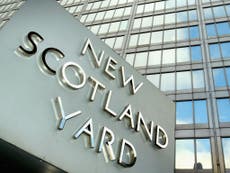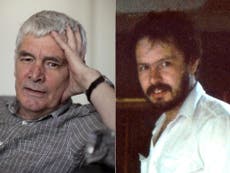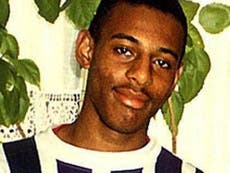Stephen Lawrence murder investigation: Macpherson was effectively working with one hand tied behind his back
The announcement last year that Mark Ellison QC was to investigate possible corruption in the Stephen Lawrence murder investigation was met with some scepticism, not least by Doreen Lawrence. Stephen’s mother, tough and resilient as she is, had seen too many false dawns over the years.
After more than a decade investigating this story, I also doubted whether it had any more to give. But we should have had more faith.
Ellison, ably supported by his junior counsel Alison Morgan, was, after all, the prosecutor who secured the convictions of David Norris and Gary Dobson. Few would have thought that possible after so many years.
I would have loved to have been a fly on the wall when Ellison delivered his report to the Home Office on Wednesday. It was not what was expected. He didn’t pull his punches. Here was a man, supposedly the type of establishment figure of which the Lawrences have long been suspicious, lobbing a hand grenade right in the middle of the Home Secretary’s office, leaving her no option but to order a full public inquiry.
The spying claims were bad enough, but here for the first time was an acknowledgement that the Lawrences had always been right to suspect that police corruption had played a corrosive role in that first, hopelessly inadequate investigation into their son’s senseless killing.
When I investigated the case for the BBC film The Boys Who Killed Stephen Lawrence in 2006, it seemed to me that there were too many mistakes, too many irregularities to be attributed to incompetence or casual racism.
We strongly suspected corruption. And Detective Sergeant John Davidson had been singled out by the Macpherson inquiry in 1998 as a critical figure. What Macpherson didn’t know – and he didn’t know because the Metropolitan Police failed to fully tell him – is that Davidson was a suspected corrupt officer. Macpherson was effectively working with one hand tied behind his back.
Our film broadcast allegations made by another former corrupt detective, Neil Putnam, who told me Davidson had confessed to corruptly aiding Clifford Norris, the father of one of the suspects. This sent shockwaves through the Met, and prompted fierce denials both from Davidson and his former employers. Mr Davidson has denied any corruption.
The Independent Police Complaints Commission – itself stocked with former detectives – launched an immediate investigation into our allegations, but concluded there was no evidence to support them. Putnam’s credibility lay in tatters, and my journalistic integrity was seriously undermined. The Met launched a blistering attack on the BBC for “sensationalist” and “irresponsible” journalism.
In 2012 the IPCC and the Met had a chance to review their positions after fresh corruption concerns were raised in this newspaper. We’re still right, they effectively said. But they hadn’t reckoned on the terrier-like Ellison.
He managed to get underneath the corruption allegations in a way the IPCC seemed unwilling or unable to do. He found a litany of Met failures: inadequate disclosures, lost analyses and shredded documents. The Met had been misleading the Lawrences and the public as recently as 2012.
Crucially, he did not dismiss Putnam’s evidence, and concluded there was “reasonable grounds” to suspect Davidson was corrupt, not least because of his links to so many bent cops. We also learn that Davidson may have been involved in the Daniel Morgan murder investigation – another running sore for the Met which stubbornly refuses to go away.
The IPCC investigation is now discredited. It is likely that trust in the Met will plunge, again.
But what does all this tell us? What is it about the way police sometimes try to cover their tracks and close ranks? Can the police ever be trusted to investigate their own? The answer to that was an emphatic “no”, the Lawrence family lawyer Imran Khan told me last night.
The Met will have to grovel once more to the Lawrences, and promise that these dark, corrupt days are behind them. But without real, demonstrable proof of that, their apologies will fall on deaf ears.
The writer is an award-winning investigative journalist for the BBC



